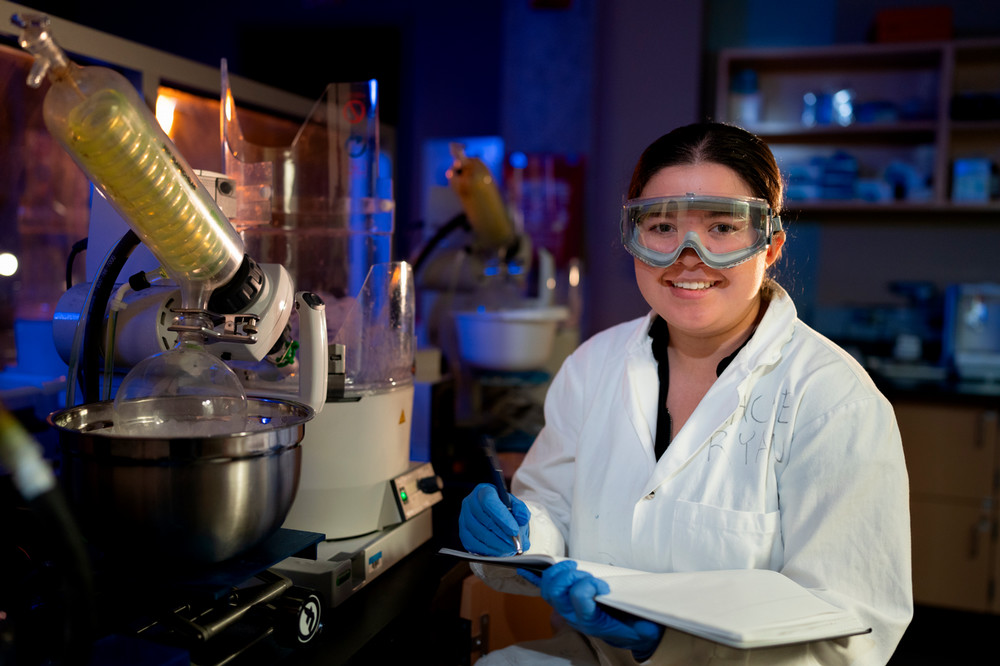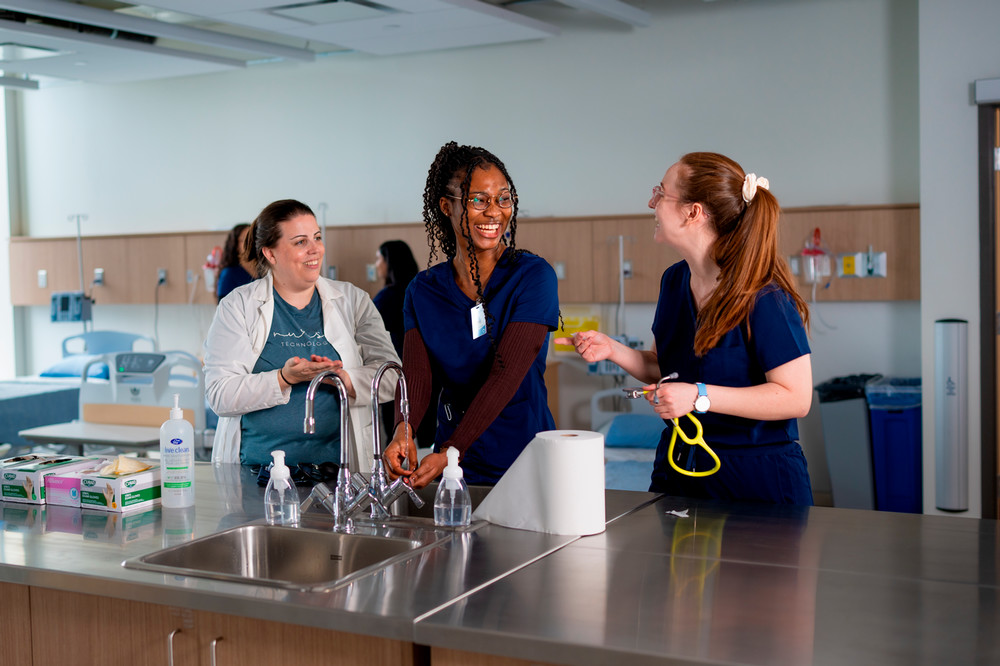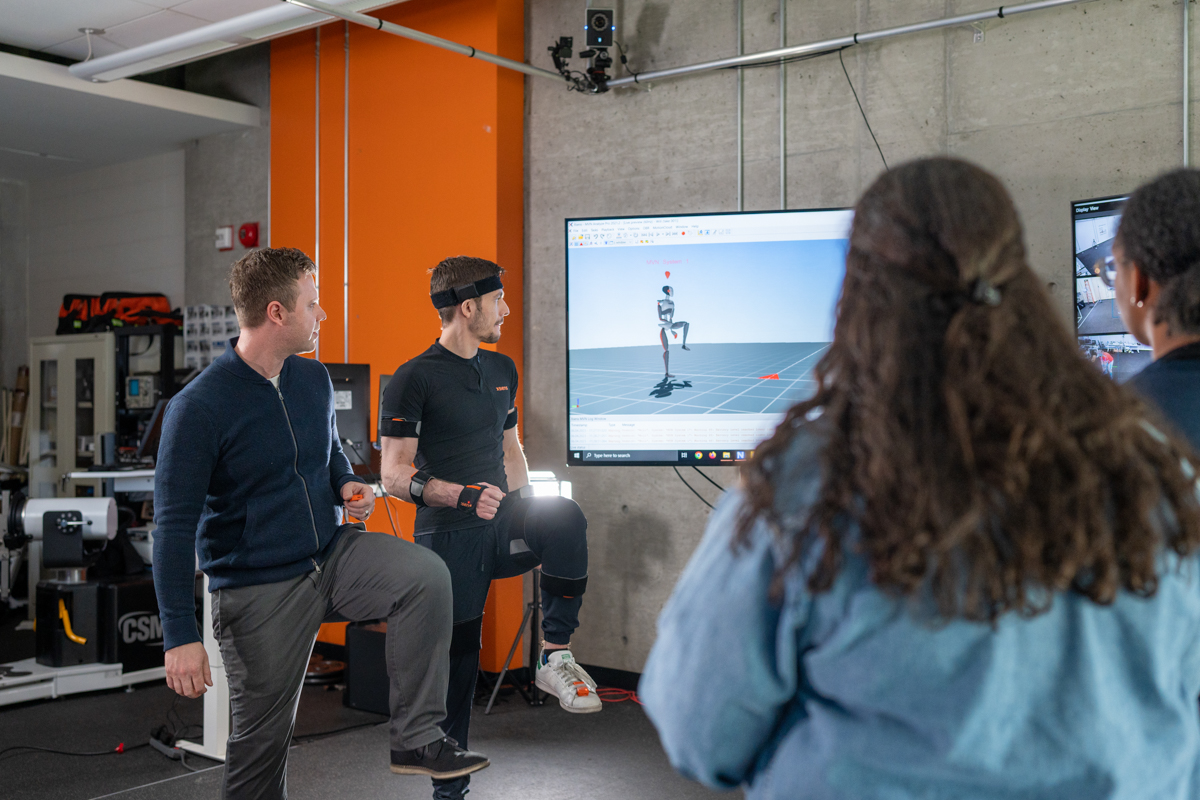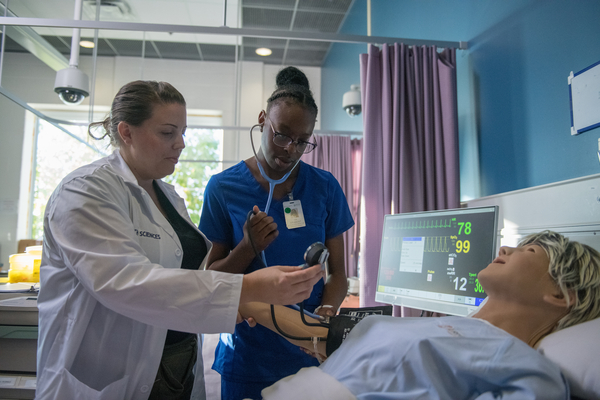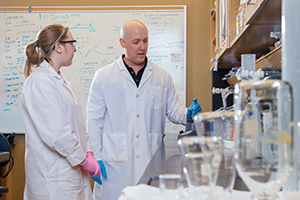Medical Laboratory Science - Northern Access Initiative
Overview
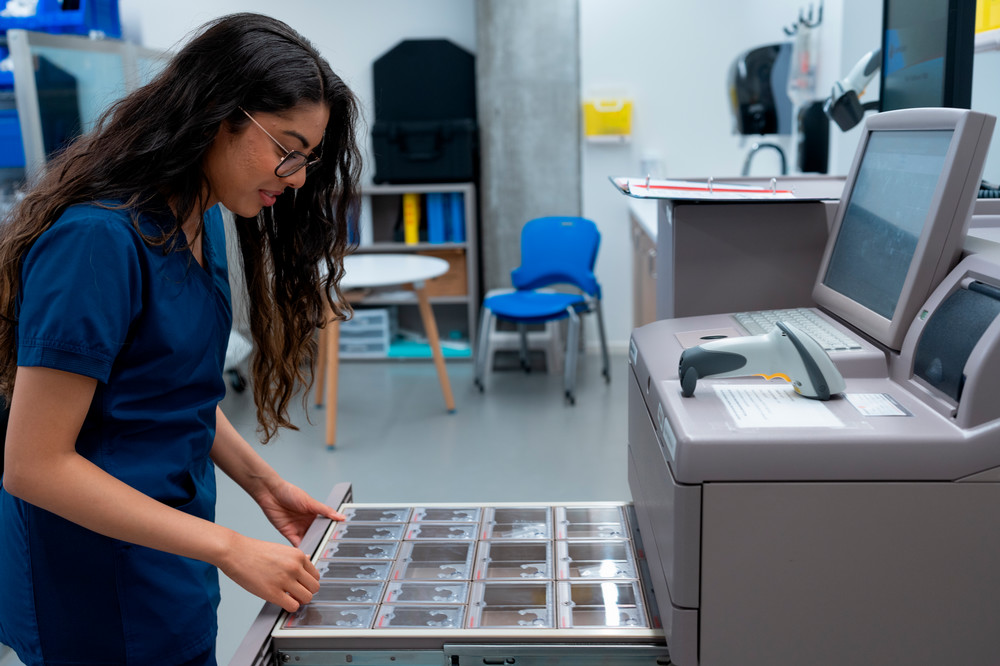 Prepare yourself to be eligible to write the Canadian Society for Medical Laboratory Science (CSMLS) national certification examination.
Prepare yourself to be eligible to write the Canadian Society for Medical Laboratory Science (CSMLS) national certification examination.
The Medical Laboratory Science – Northern Access Initiative is reserved for applicants from northern Ontario. If this does not apply to you, please apply to the Medical Laboratory Science program using the program code DHL.
Modern health care has become increasingly dependent on complex laboratory tests—the results of which aid in the diagnosis, monitoring and treatment of disease. You will gain fundamental knowledge and skills in biological, physical and health sciences. The medical laboratory science-specific courses cover five laboratory disciplines: biochemistry, hematology, histotechnology, microbiology and transfusion science.
This program is accredited by Accreditation Canada. Upon successful completion, you are eligible to write the Canadian Society for Medical Laboratory Science national certification examination and subsequently work in all Canadian provinces and territories.
One of the most exciting parts of this program was the opportunity I received for a clinical placement in a hospital in Northern Ontario, where I applied everything I learnt in class to real-life patient care. This program offers so many opportunties to gain hands-on experience in a professional environment. Combined with the program’s state-of-the-art labs and supportive faculty, this placement is helping me feel fully prepared for a career as a medical laboratory technologist. Rumesha Khan Bachelor of Health Science (Honours) Class of 2024
Admissions
Admissions
Current Ontario secondary students must complete the Ontario Secondary School Diploma (OSSD) with six 4U or 4M credits, including English (ENG4U) with a minimum grade of 60
Note: Admission is competitive. The specific average or standing required for admission varies from year to year. Students are selected by taking into consideration a wide range of criteria including school marks, distribution of subjects taken, and performance in subjects relevant to the academic program. Possession of the minimum requirements does not guarantee acceptance. Preference will be given to applicants with the best qualifications.
| Last year's cut-off | N/A |
|---|---|
| Expected cut-off | High-70s |
The application process and important dates/deadlines are outlined on our admissions website:
• Ontario secondary school applicants
• Ontario secondary school graduates
• Canadian out-of-province high school applicants
• Mature applicants (over 21 and never attended post-secondary)
• Transfer applicants
• General Arts and Science (GAS) applicants
• Home-schooled applicants
Note: A student who has self-identified as Indigenous (Status or Non-Status First Nation, Métis and/or Inuit) who does not meet the competitive GPA for admission, but who still meets a minimum 70
Career opportunities
- Registered Medical Laboratory Technologist
- Animal Health Technologist
- Biological Technologist
- Food Science Technologist
- Health Information Management Technician
- Technical Sales Specialist
Experiential learning
Starting in first year, students will have the opportunity to apply their knowledge and get hands-on experience in the simulation laboratories. As theoretical knowledge expands, so does experiential knowledge. In fourth year, students will be placed in a diagnostic medical laboratory for the final two practicum semesters where they will work under the supervision of a medical laboratory technologist and perform increasingly complex procedures on human specimens. Clinical placements give students hands-on practice, experience in different work environments and the opportunity to network with potential employers.
Did you know?
-
Sample courses
- Loading...
- Loading...
- Loading...
- Loading...
- Loading...
- Loading...
- Loading...
- Loading...
- Loading...
- Loading...
- Loading...
- Loading...
- Loading...
- Loading...
- Loading...
- Loading...
- Loading...
- Loading...
- Loading...
- Loading...
- Loading...
- Loading...
- Loading...
- Loading...
- Loading...
- Loading...
- Loading...
- Loading...
- Loading...
- Loading...
- Loading...
- Loading...
- Loading...
- Loading...
- Loading...
- Loading...
- Loading...
- Loading...
- Loading...
- Loading...
- Loading...
- Loading...
For program requirements, including required number of credits for completion, program maps and course descriptions, please see the academic calendar and course catalogue of Loading.... Courses are subject to change without notice. -
Med Lab tour

